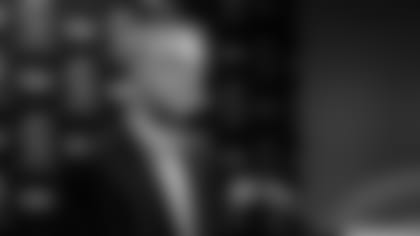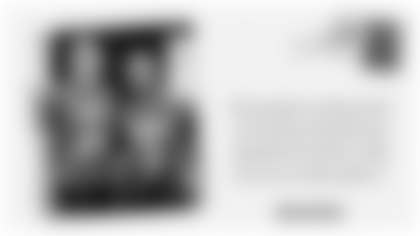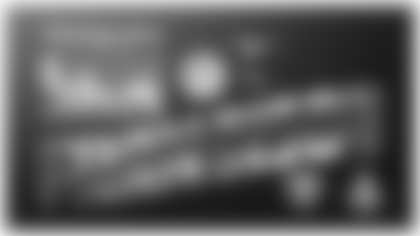Bears chairman of the board George H. McCaskey addressed the NFL's national anthem issue Thursday during a 15-minute press conference at Halas Hall.
McCaskey discussed the team's stance on the league's new national anthem policy—which requires players to stand on the sideline or remain in the locker room—as well as whether he feels players should stand during the "Star Spangled Banner."
First, McCaskey corrected the misconception that players have kneeled during the anthem to disrespect the United States flag and/or the military.
"The first players to take a knee during the national anthem did so to bring attention to two issues: police misconduct and social inequality," McCaskey said. "There are legitimate issues that deserve discussion and action. As a country, we can do better.
"Commissioner [Roger] Goodell said it very well, and it bears repeating: it was unfortunate that on-field protests created a false perception among many that thousands of NFL players were unpatriotic. This is not and was never the case.
"The players' actions were characterized by some and perceived by some as disrespectful to the flag, our country and our military, and what should be a unifying moment for our communities and our country has become in some instances another source of divisiveness."
NFL owners unanimously approved the new anthem policy May 24.
"There is no easy answer to the anthem issue," McCaskey said. "No one is entirely right, nor entirely wrong. The policy change enacted a couple weeks ago by NFL teams, including the Bears, isn't perfect. But we think it will return the anthem to what it should be: a unifying force while providing an option to those players and other team personnel who choose not to stand."
McCaskey made it clear that the Bears are in favor of the NFL's new policy. Asked whether he personally believes that players should stand during the anthem., he said: "We think players should stand. We encourage our players to stand. I told them that last September and we feel the same way."
McCaskey does not believe the new policy infringes on the players' right to protest.
"We think it's a workplace issue," said McCaskey, who earned a law degree from Arizona State University. "I'll leave the Constitutional law questions to the Constitutional law experts. I'm a recovering lawyer."
McCaskey said that he's still in the process of determining what if any disciplinary action the Bears will take against players who violate the new league policy.
McCaskey feels that two positives have resulted from the national anthem debate: 1) It's led to new social justice initiatives; and 2) He has become much closer to outside linebacker Sam Acho, the Bears' player union representative.
"[Acho] has helped to break down what seems to be innate mistrust between players and management," McCaskey said. "He has counseled me, debated me, challenged me. We haven't always agreed, but when we disagreed, it has been with respect.
"He has opened my eyes to some uncomfortable truths, and as difficult as it has been to confront them, I'm grateful to Sam for being patient with me and for not losing faith in me."
McCaskey has not spoken to the team since the new policy passed, but he intends to discuss the issue with players when they reconvene at training camp.
"I talked to Sam and I wanted to give his teammates ample opportunity to talk to me," McCaskey said. "I just caught Sam briefly in the hallway the other day and said, 'Any of your teammates want to sit down and talk?'
"He said, 'Quite frankly, their minds are on other things right now. They're trying to learn a new system. They're trying to get to know their teammates. They're trying to find out where they fit. They're trying to impress their coaches.' So that's top of mind right now. They still have plenty of time between now and [the season opener] Sept. 9."







